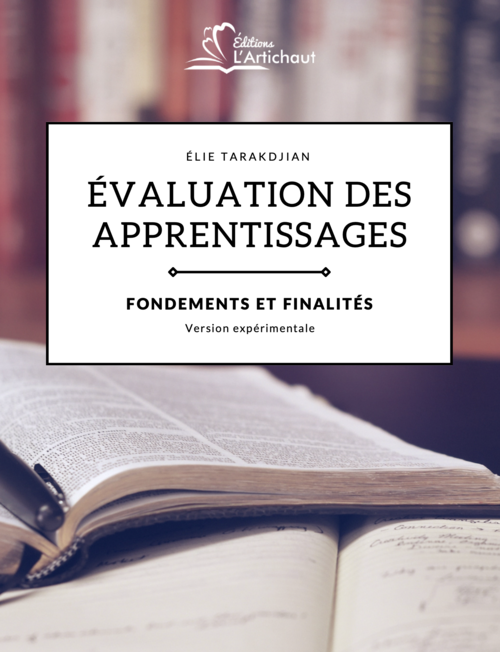Élie Tarakdjian's work, 'Learning Assessment: Foundations and Purposes', published by Artichaut Editions, offers an innovative exploration of education in Quebec at the beginning of the century.
This pedagogical renewal is based on a philosophy centered on the student, positioning them not only as a receiver but also as a builder of their own knowledge. The emphasis is on learning processes rather than outcomes, thus valuing individual methods of understanding and knowledge construction. The interaction between the student and the teacher is viewed from a new, multidirectional and dynamic angle, thanks to advances in the psychology of learning and in didactics. This contemporary perspective is widely accepted and implemented by educators, who are constantly adapting their methods to reflect these changes. The work raises crucial questions about the integration of teaching, learning, and assessment, suggesting an inseparability between these elements.
It aims to establish assessment as a tool for the development of the student, accurately reflecting their skill level, and not just as a means of measuring achievements.

"Learning Assessment: Foundations and Purposes" by Élie Tarakdjian, published by Artichaut Editions, addresses the educational renewal in Quebec, focusing on the importance of actively involving the student in their learning.
This work explores the transition from perceiving the student as merely a receiver to being a builder of their own knowledge. Tarakdjian examines various pedagogical aspects, such as constructivism and the relationship between teaching, learning, and assessment. He provides a guide for education professionals, emphasizing a holistic approach where these three elements are closely linked and centered on the student.

For a fraction of the price, here's the non-downloadable PDF version.
"Learning Assessment: Perspectives and Objectives" by Élie Tarakdjian, published by Artichaut Editions, offers a more affordable version without the option to download PDF files, while still providing a student-centered analysis.
The book, marking a significant evolution in pedagogy in Quebec, reevaluates the perception of the learner, seeing them as an active participant in their education. It covers essential topics for teachers, including constructivist approaches and the link between teaching, learning, and assessment. This practical guide emphasizes a holistic education, connecting teaching and learning processes with student-focused assessment.